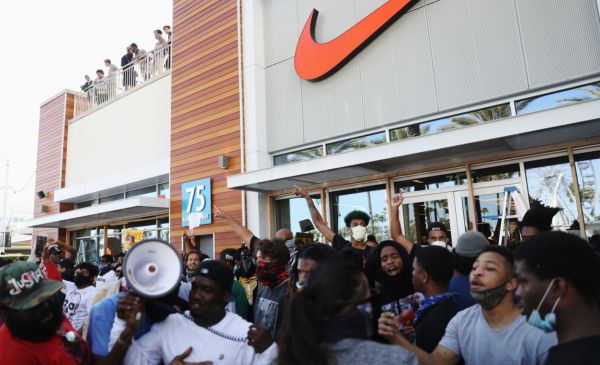
As brands continue to try and navigate a world of awakening and change, its clear they are on a learning journey. With plenty of opportunities to learn, from women’s rights, climate change, homelessness, immigration, and now racial equality. It’s impossible to be against any of these issues. So why do brands feel the need to state the obvious?
As Mark Ritson writes in a scathing and powerful MarketingWeek article, “We marketers live in a branding bubble of our own creation. We think brands matter. That our brand matters. We think advertising is important. We think other people care. And with each passing year our branding bubble appears to become less and less transparent. An increasing proportion of marketers lose touch with the consumers they are meant to take their coordinates from, and fall for the bullsh*t that their brands and their communications make any kind of difference to society at large – and that this impact is a crucial part of their job.”
I think brands matter a great deal. But I also think actions speak louder than words, or inexpensive GIFs that can be spun up in seconds and posted to social media with little effort and even less accountability. Let’s look at some examples:
Joining a chorus of brands, Amazon statement said that “inequitable and brutal treatment of Black people in our country must stop” and promised to “stand in solidarity with the Black community—our employees, customers, and partners—in the fight against systemic racism and injustice.” But what about that time they fired a black contractor for asking about the Coronavirus? Or that time they tried to smear a warehouse organizer as “not smart or articulate.”
A Vice article shares how Uber’s CEO Dara Khosrowshahi tweeted something similar, stating the company “stands in solidarity with the Black community and with peaceful protests against the injustice and racism that have plagued our nation for too long.” To that end, he announced a $1 million donation to two racial justice think tanks “to support their work in making criminal justice in America more just for all.” Yet in the background, Uber is fighting legislation that would reclassify their workforce and entitle them to benefits such as health insurance and minimum wage. With a large number of minorities comprising the workforce, how solid is that solidarity?
Ritson’s article in MarketingWeek includes numerous examples of our most highly cherished brands: Apple, Nike, Adidas, Spotify, L’Oreal – each of which has professed strong alignment to the movement for racial justice, even donating money to associated causes, yet all of their senior leadership remains white. Riston clarifies, “I am not saying that companies have to have black people in their leadership teams as a general policy. But if you believe what you are telling the market about black voices, it should start with switching out some of your white executives in your upper echelons for executives of color. Not because these people are bad. Not because you have to encourage more diversity in the boardroom. But because you are claiming to care about black issues and black representation – so do something meaningful about it.”
In a tweet, writer and brand strategist Vikki Ross shares how she answered one of her clients who asked “should we change our logo?” with a series of pointed questions that’s worth reading, internalizing and spending some time thinking upon:
- Do you support the cause? Or do you want to look like you do?
- Do you always support the cause? Or do you support the cause when it is trending?
- If you change your logo to support the cause, when do you change it back?
- When you change your logo back, don’t you support the cause anymore?
- If you can change your logo back, when will you do it?
- What happens if another cause is trending? Do you change your logo again?
- How do you keep up with showing support for every cause? What if you miss one?
- If you keep changing your logo, what is your logo?
- Should you just always do what feels like the right thing at the time? Assuming your business is always doing the right thing, whether it promotes it via its logo or not.
Yes, these are challenging times. #blackouttuesday would have been better if brands had just gone dark, and listened, and thought about the changes they will or won’t make, before rushing to deploy content and messaging. We know there is hurt, and we know most of the people on this planet want to do something to make the hurt less. But we need to remember that actions speak louder than words.
Like people, brands need to be the change they profess to want to see.
The Blake Project Can Help: Avoid contradictions. Think it through in The Brand Positioning Workshop
Branding Strategy Insider is a service of The Blake Project: A strategic brand consultancy specializing in Brand Research, Brand Strategy, Brand Growth and Brand Education
FREE Publications And Resources For Marketers
No comments:
Post a Comment